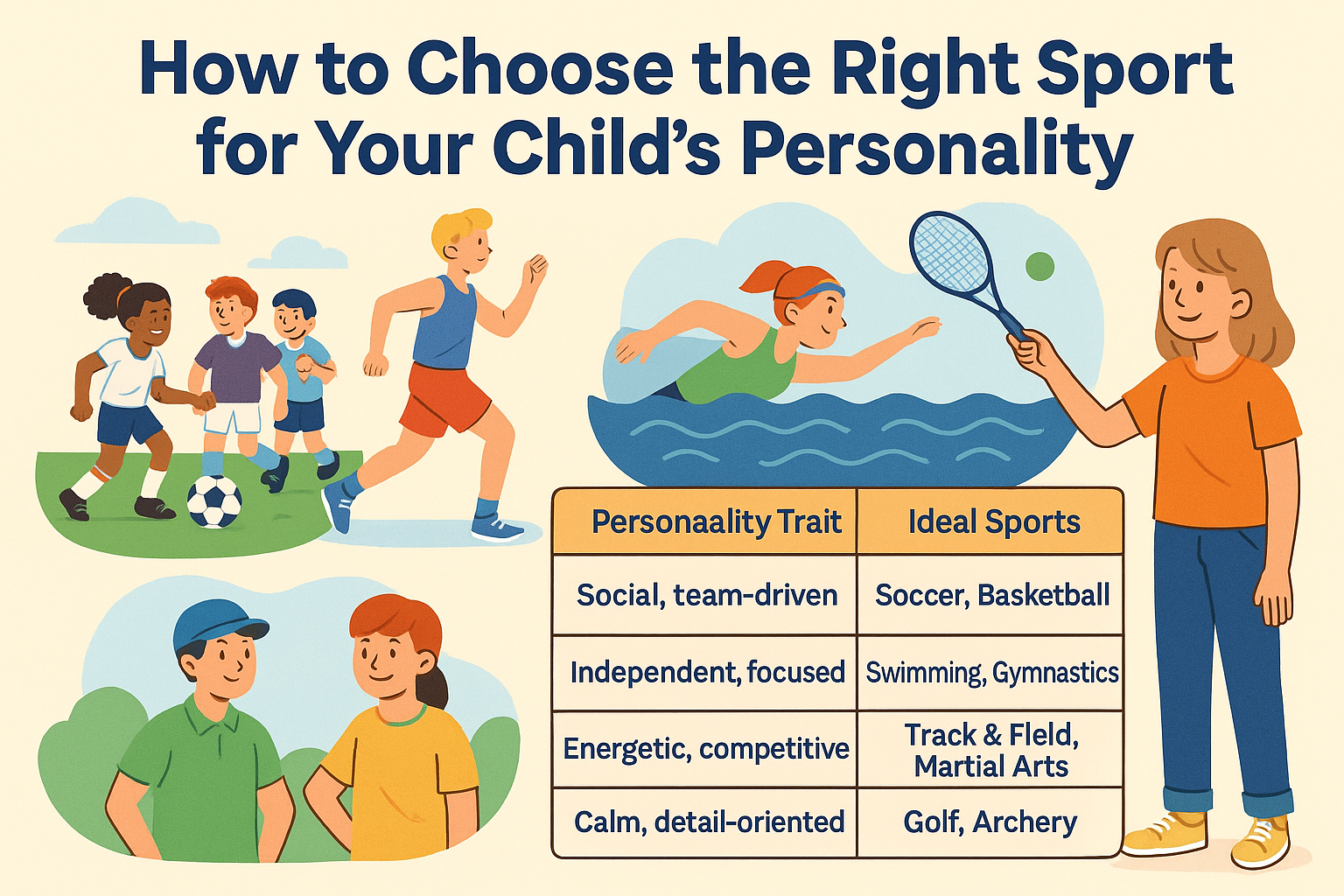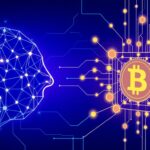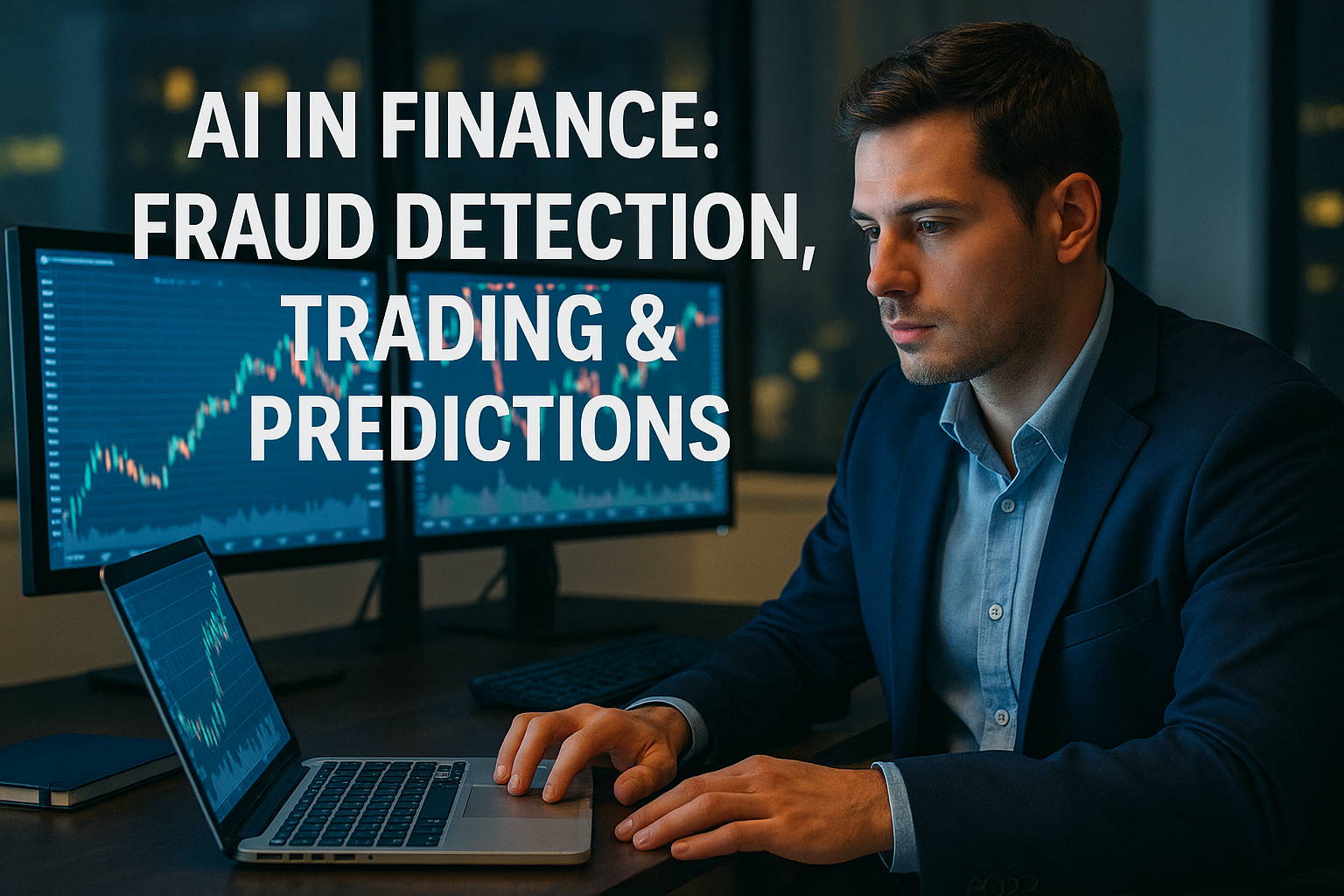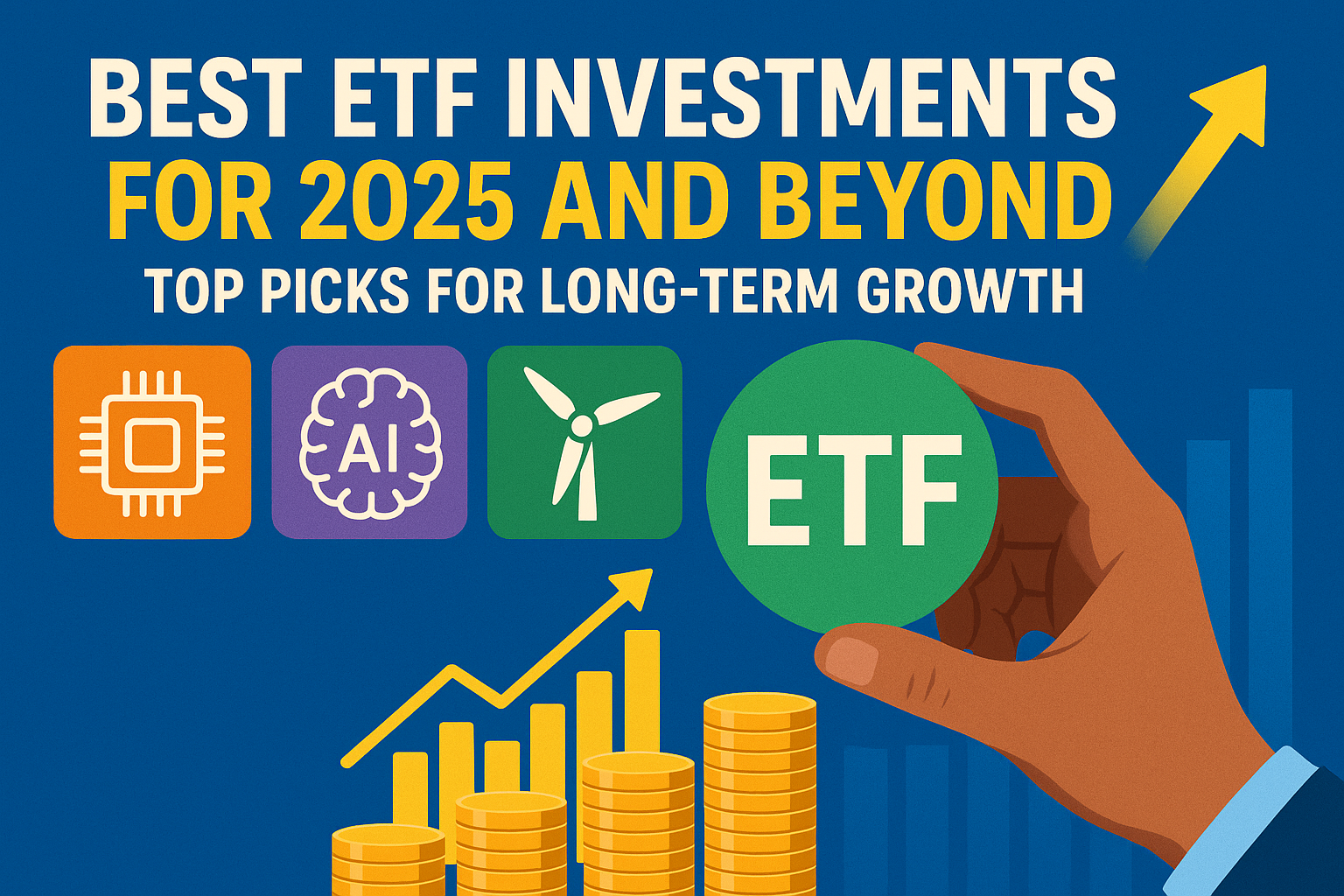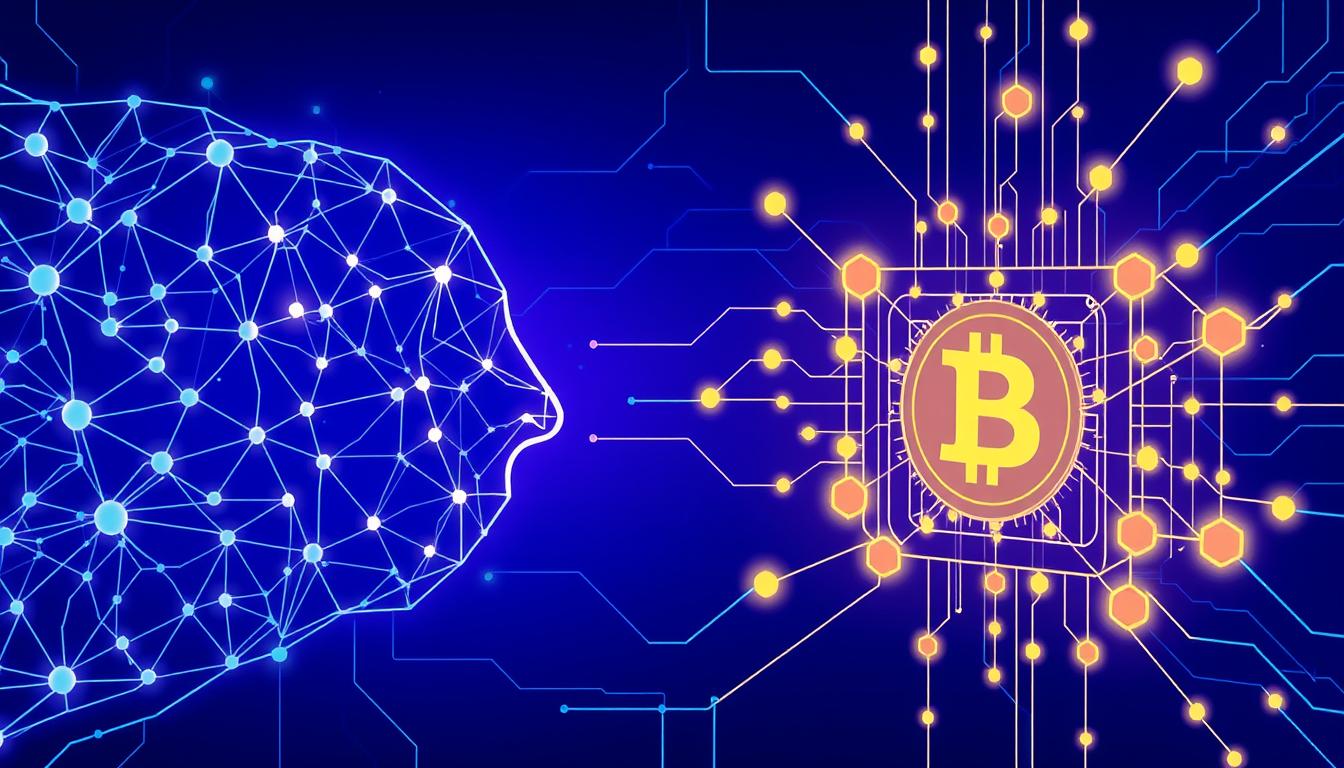Introduction
The financial world is changing fast, thanks to Artificial Intelligence (AI). AI helps in detecting fraud and predicting stock trends. It makes finance faster, safer, and more efficient.
But how is AI changing finance? What are the risks? What’s the future?
In this article, we’ll explore:
✔ AI-powered fraud detection – How banks stop scams in real time
✔ Algorithmic trading – The rise of AI-driven stock market strategies
✔ Predictive analytics – Forecasting risks and customer behavior
✔ Challenges & future trends – Can AI replace human financial experts?
Let’s dive in!
1. AI in Fraud Detection: Stopping Scams Before They Happen
Financial fraud costs businesses over $5 trillion per year (Source: PwC). AI is fighting back with:
How AI Detects Fraud
| AI Technique | How It Works | Example |
|---|---|---|
| Machine Learning (ML) | Learns from past fraud patterns | Detects unusual credit card transactions |
| Behavioral Biometrics | Tracks typing speed & mouse movements | Flags suspicious login attempts |
| Natural Language Processing (NLP) | Analyzes phishing emails & fake invoices | Identifies scam messages |
Real-World Use Cases:
PayPal uses AI to block $4 billion in fraud annually.
Mastercard’s AI reduces false declines by 30%.
2. AI in Trading: The Rise of Algorithmic & High-Frequency Trading
AI is dominating stock markets with lightning-fast decisions.
Types of AI Trading Systems
| Type | How It Works | Example |
|---|---|---|
| Algorithmic Trading | Executes trades based on pre-set rules | BlackRock’s Aladdin |
| High-Frequency Trading (HFT) | Makes thousands of trades per second | Citadel Securities |
| Sentiment Analysis | Scans news & social media for trends | Bloomberg’s AI-powered analytics |
Impact of AI on Trading:
✔ Reduces human emotion (no panic selling)
✔ Executes trades in milliseconds
✔ Analyzes vast datasets (news, earnings reports, global events)
Risks:
❌ Flash crashes (2010’s “Flash Crash” wiped $1 trillion in minutes)
❌ Over-reliance on AI can backfire (if models fail)
3. AI in Financial Predictions: Forecasting Risks & Customer Behavior
Banks and hedge funds use AI to predict market shifts, loan defaults, and customer needs.
AI Prediction Models in Finance
| Application | How AI Helps | Example |
|---|---|---|
| Credit Scoring | Analyzes non-traditional data (social media, spending habits) | Upstart’s AI approves 27% more loans than traditional models |
| Risk Management | Predicts loan defaults & market crashes | JPMorgan’s COiN reviews legal docs in seconds |
| Customer Insights | Personalizes banking offers | Bank of America’s Erica (AI chatbot) helps with budgeting |
Case Study:
Goldman Sachs uses AI to predict stock price movements with 60% accuracy, outperforming human analysts.
Challenges & Risks of AI in Finance
Despite its benefits, AI in finance has serious challenges:
| Challenge | Risk |
|---|---|
| Data Privacy | AI needs massive data—breaches can expose sensitive info |
| Regulation | Governments struggle to keep up with AI-driven finance |
| Bias in AI Models | If trained on biased data, AI can discriminate in loans/credit |
| Job Displacement | AI may replace analysts, traders, and fraud investigators |
Example:
Amazon’s AI recruiting tool was scrapped because it discriminated against women.
The Future of AI in Finance (2025 & Beyond)
By 2030, AI is expected to:
✔ Automate 80% of banking tasks (McKinsey)
✔ Power 75% of all stock trades (Forrester)
✔ Enable fully AI-driven hedge funds
Emerging Trends:
Quantum AI Trading (Combining quantum computing + AI for ultra-fast predictions)
Decentralized Finance (DeFi) + AI (Smart contracts with fraud-detection AI)
AI Central Bank Advisors (Some predict AI could replace human economists)
Final Verdict: Will AI Replace Human Financial Experts?
AI is transforming finance, but not replacing humans entirely. Here’s why:
✅ Best for:
Fraud detection (AI spots patterns humans miss)
High-speed trading (AI reacts in milliseconds)
Data-heavy predictions (AI crunches numbers faster)
❌ But humans are needed for:
Ethical decisions (AI can’t judge morality)
Customer relationships (People trust humans more)
Crisis management (AI can’t handle unpredictable events)
The future? AI + human collaboration—where machines handle data, and humans make the final call.
FAQ
Q: Can AI predict stock market crashes?
A: Partially—AI can spot warning signs, but can’t predict black swan events like COVID-19.
Q: Is AI trading legal?
A: Yes, but rules are getting stricter to stop market manipulation.
Q: Will AI replace bankers?
A: Some roles (like fraud analysts) might shrink. But AI will create new jobs (like AI auditing and ethics oversight).
Q: How accurate is AI in finance?
A: Very accurate in structured tasks (like fraud detection). But it’s not perfect in complex predictions.
Conclusion
AI is changing finance—making it faster, smarter, and safer. It’s used for real-time fraud detection and AI-powered hedge funds. The finance world is changing fast.
But, there are risks: like data privacy, bias, and too much trust in algorithms. The key is to use AI wisely and with human oversight.
What do you think? Would you trust an AI financial advisor? Share your thoughts in the comments!



